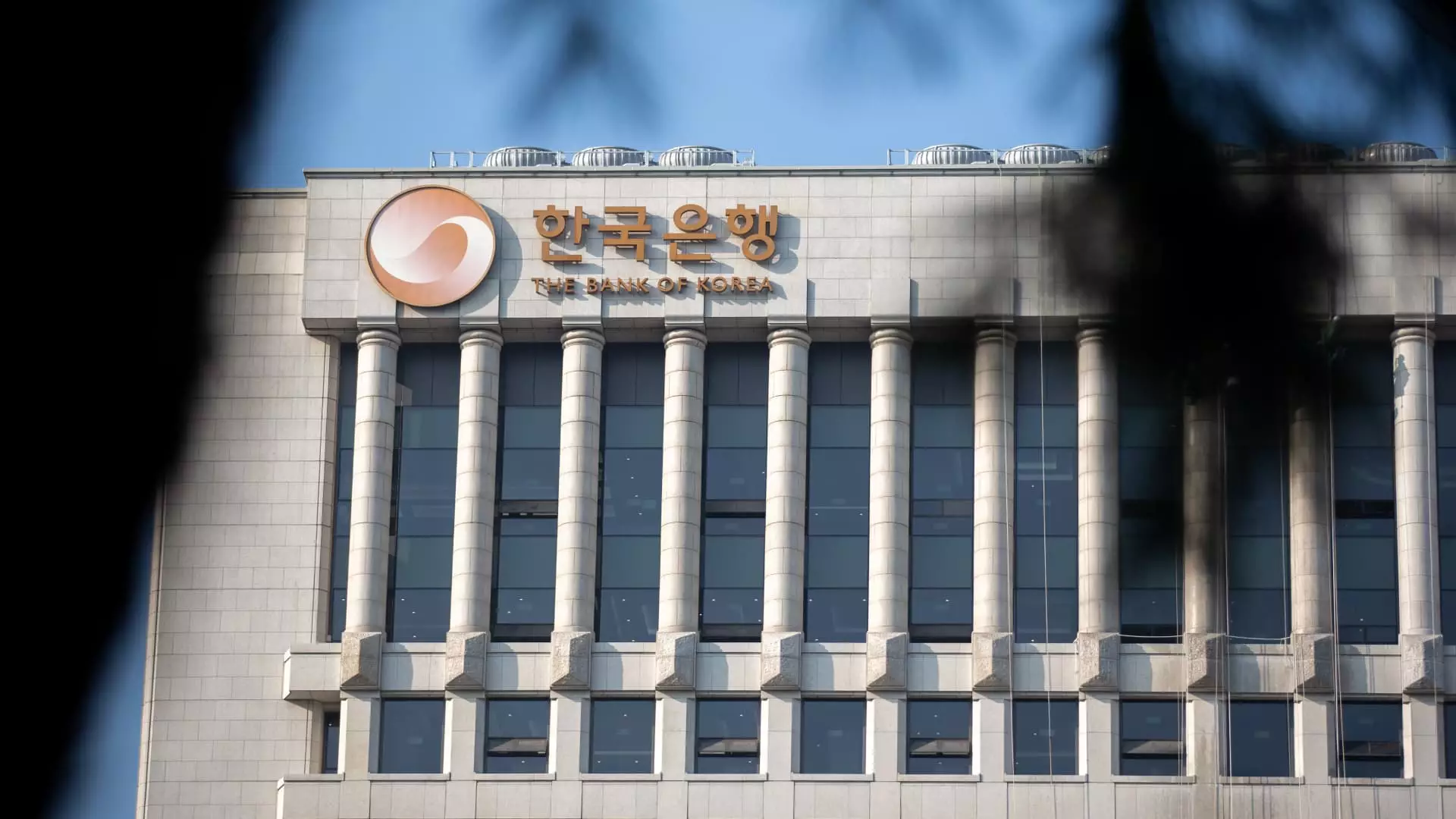Once again, South Korea finds itself grappling with an economic landscape that feels increasingly precarious. On Thursday, the Bank of Korea (BOK) made the significant decision to cut the policy interest rate by 25 basis points, dropping it to 2.5%. This move isn’t merely a technical adjustment; it’s a desperate maneuver to stave off deeper economic woes exacerbated by bleeding political instability and cunning international trade tactics from the U.S., particularly the infamous tariffs imposed during the Trump administration.
The interest rate is now at its lowest point since August 2022, a clear reflection of the challenges the nation faces. The BOK has now instituted four rate cuts in just six meetings, signaling an unsettling trend of economic contraction that few would have anticipated only a short time ago. The current political chaos, ignited by former President Yoon Suk Yeol’s disastrous attempt to impose martial law just a few months back, seems to have backed the economy into a corner.
The Tariff Dilemma
Let’s not forget the external pressures that add to the anxiety: the U.S. slapped South Korea with a dramatic 25% reciprocal tariff, adding to the economic malaise. The fact that these tariffs were temporarily suspended for 90 days does little to alleviate the looming uncertainty. The window to negotiate a suitable resolution before the July 8 deadline is closing fast, and the South Korean administration is scrambling to strike a deal. Meanwhile, the ticking clock of an impending presidential election—scheduled for June 3—adds another layer of complexity to an already contentious situation.
Political volatility often breeds economic instability, and Korea appears to be a case study. Can the incoming administration effectively navigate this storm? Current indications suggest that may be a tall order. South Korea’s economic indicators are dismal and not improving fast enough to stave off a recession.
Economic Contraction and Its Implications
The latest GDP data paints a disheartening picture, revealing an unexpected contraction of 0.1% in the first quarter. This marks the first decline since the last quarter of 2020, contributing to an ever-growing sense of foreboding about the national economy’s direction. It’s alarming that the BOK now forecasts that the national growth rate will dip to a mere 0.8% in 2025, down from an already modest projection of 1.5%. With the trade minister recently asserting time constraints as a barrier to obtaining a satisfactory trade deal, there remain significant question marks over the upcoming election’s ability to catalyze any semblance of economic improvement.
Analysts like Gareth Leather from Capital Economics are cautiously optimistic, suggesting that the election may usher in “much-needed fiscal stimulus,” which could potentially revitalize consumer spending. However, we must remain skeptical about the sufficiency of such measures. Given the disarray in property and export sectors, such superficial stimuli may hardly scratch the surface required to lift the GDP forecast beyond the dire 0.5% for the full year.
The Financial Market Reaction
The Kospi stock index reflected initial enthusiasm following the announcement of the rate cut, surging by 1.25%. Yet this surge belies the underlying economic reality; stock market spikes can be misleading indicators of genuine recovery. On the flip side, the South Korean won weakened by 0.71%, further indicating that investors are wary of the economic storm looming ahead.
The reaction from financial markets underscores a critical point: while temporary relief via rate cuts may seem favorable, they do little to address the vulnerabilities rooted in prolonged political instability and poor economic forecasts. The events unfolding reflect a society teetering on the brink of uncertainty, where decisive action is not only desired but essential.
A Cry for Substance
The current environment in South Korea is rife with anxiety. Decision-makers within the BOK should not merely focus on monetary policy as a cure-all. It is increasingly evident that a coordinated effort between fiscal and monetary policies, along with effective governance, is crucial for reducing risks and stabilizing the economy. The double-edged nature of political paralysis and external trade entanglements demands not only immediate, decisive action but also long-term strategic thinking grounded in pragmatic liberalism.
In these unsettling times, South Korea must demand leadership that embraces change, strategizes effectively, and, most importantly, prioritizes the well-being of its citizens over mere political posturing.

